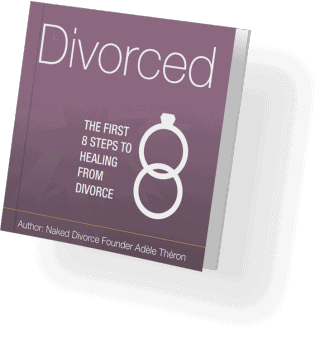
Free e-book: The First 8 Steps to healing from divorce

We have all been there: the rising tension, the increase in heart rate, the feeling that we could explode – yes, we have all been angry.
We have also probably been told that controlling our anger is ‘good’. And yet, more and more, people are recognizing that they are angry too often and that their reaction is causing pain and damage to those around them.
But it’s not just our nearest and dearest who can be damaged by our anger; we are also harming ourselves.
Recent studies and articles have outlined the significant negative effect that frequent or unresolved anger can have on our bodies. So how does anger affect our bodies, and how can we manage our anger without causing havoc to our loved ones?
Anger can be positive
Anger can be a good thing. Anger produces physiological changes in the body which prepare us for ‘fight or flight’ that can protect us from danger. It’s designed to protect us, our relationships and our way of seeing the world. In the everlasting battle between right and wrong, the bodily effects of anger are meant to tell us that something’s wrong.
In 2005, a study showed that responding to a stressful situation with anger instead of fear gave you a greater sense of control and optimism about the situation. In the study, researchers analyzed facial expressions, coding them for fear and anger. Those who showed more fear had higher blood pressure and stress hormones. However, those very changes can also have a negative effect on the body.
Negative effects of anger
When we become angry, our heart rate increases, additional blood is sent to our essential organs and muscles, our blood sugar level increases, and the ‘stress hormone’ adrenaline is released. Our upper body tenses up, to prepare us for a fight.
If we become angry frequently, these physiological changes can have serious side effects.
We may suffer from shoulder and neck pain, headaches or migraines, or even toothache from clenching our teeth. Anger can also lead to high blood pressure, heart disease, strokes, and can make us more susceptible to illnesses such as colds and flu, or even cancer.
How we deal with our anger is crucial
Anger in itself is not necessarily bad, but our strategy for anger management is crucial. Frequent angry outbursts can have a huge impact on our everyday lives. Sometimes people suppress their anger, letting it smolder away for years.
Women have often been conditioned to believe that expressing anger is ‘unfeminine’ and encouraged to stay calm and patient at all times. Both approaches can have serious consequences for our health; what we need is a safe way to release our anger.
How releasing anger can help
A problem shared is a problem halved, so connecting with others who are also battling their angry feelings can be a great help. There is a place where you can get help to express your difficult emotions in a positive way, releasing anger and having a laugh at the same time.
Exercise increases endorphin, the ‘feel good’ hormone, which can counteract the less helpful hormones. Throwing yourself into moves such as the Arm Chop Katherine, Eagle Slam and Double-handed Woodchopper will not only leave you feeling great, but also help your anger to disappear.
So, rather than let your anger simmer away until the volcano finally explodes, why not give yourself a visit to Tantrum Club with your friends, and find a safer way to manage your anger and stay healthy?
If you enjoyed this post, I’d be very grateful if you’d help it spread by emailing it to a friend, or sharing it on Twitter or Facebook.
With you in service

 Book a Clarity Call for any divorce or break up support you need,
Book a Clarity Call for any divorce or break up support you need,

